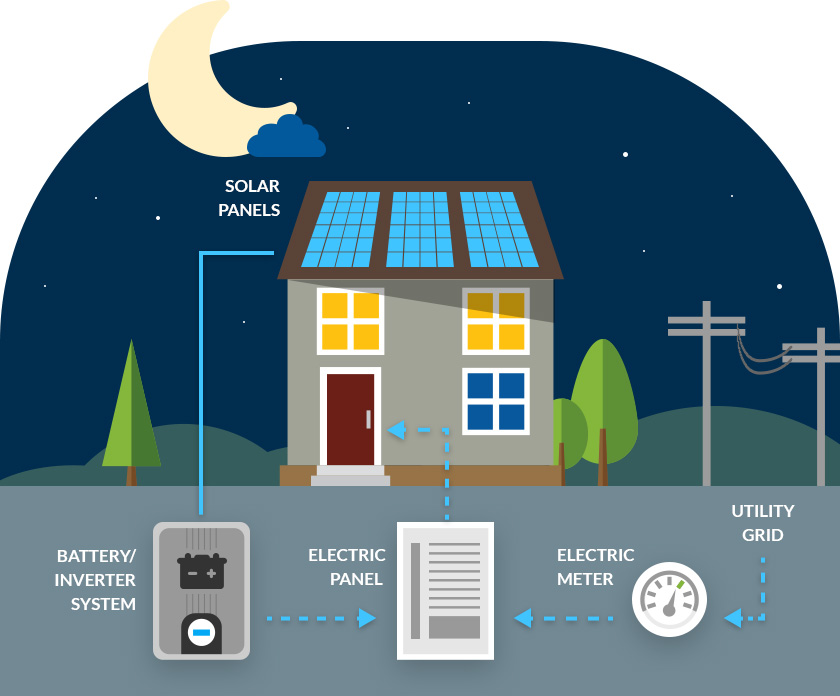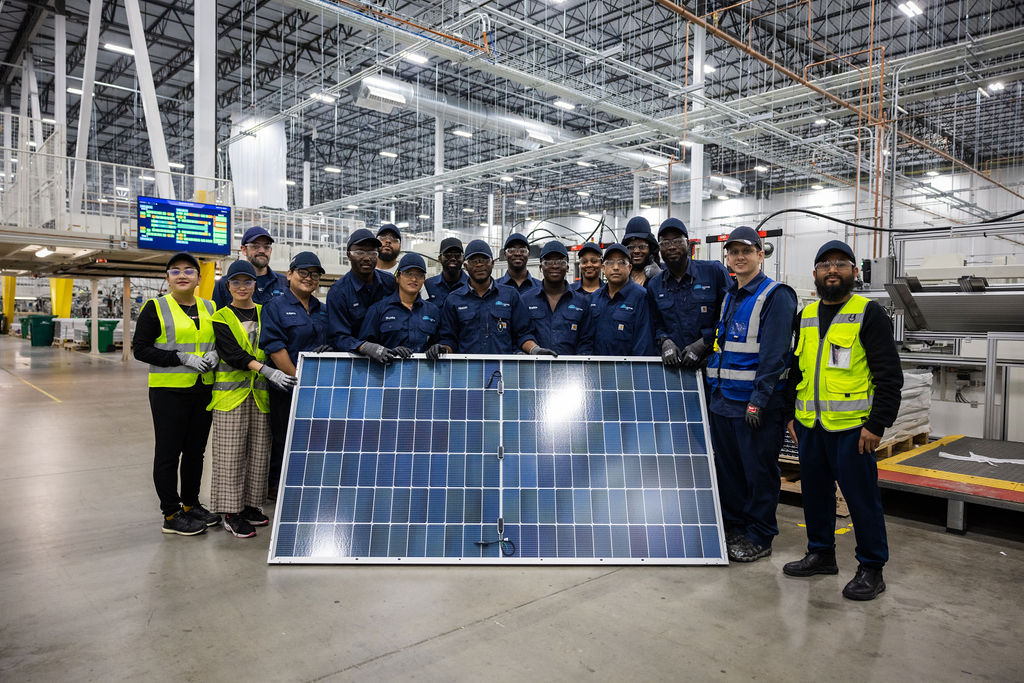Solar System Contractor Virginia: Lumina Solar Concentrates On Offering Advanced Photovoltaic Solutions For Houses And Businesses
History and Founding
Have you ever questioned how a solar panel business springs from a simple spark of inspiration into a powerhouse of renewable resource? It frequently starts with a vision-- one sustained by a blend of innovation, determination, and a pinch of serendipity. The journey of lots of website solar business mirrors the development of the technology itself: from bulky, inefficient panels to streamlined, high-efficiency marvels harnessing the sun's bounty.
The Early Days
In the late 20th century, when solar power was still a niche idea, leaders planted seeds for what would end up being a worldwide motion. Think of a small workshop filled with curious engineers, relentlessly explore photovoltaic cells. Their enthusiasm was palpable, frequently driven by a desire to fight environment change and reduce dependence on fossil fuels.
One such anecdote has to do with a creator who, motivated by a camping trip, understood that even in remote locations, the sun might power important gadgets. This simple observation stimulated a company's objective to democratize access to clean energy.
Establishing Principles

- Innovation: Constantly pushing the borders of solar technology to enhance effectiveness and sturdiness.
- Sustainability: Dedicating to environmentally friendly production and decreasing carbon footprints.
- Accessibility: Making renewable resource services cost effective and practical for daily users.
Milestones in Growth
| Year | Key Event |
|---|---|
| 1985 | Company established in a small garage, concentrating on research and development. |
| 1995 | First business solar panel item introduced, acquiring local attention. |
| 2005 | Broadened to international markets, embracing worldwide renewable resource goals. |
| 2015 | Introduced innovative solar panel innovation with enhanced energy conversion. |
Isn't it fascinating how these incremental steps, typically overlooked, shape the energy landscape today? The photovoltaic panel business story is not simply about innovation; it's about an unrelenting quest for a brighter, cleaner future.

Innovations in Photovoltaic Panel Technologies
Ever seen how some solar panels gleam brighter and last longer? It's not magic; it's the science of photovoltaic effectiveness. Modern solar panel companies invest heavily in technologies like bifacial cells, which capture sunlight from both sides, improving energy harvest without expanding roofing system area. Have you ever questioned why some panels perform better on cloudy days? That's due to advances in thin-film solar technology, which grows under diffused light conditions.
Product Variations Customized to Distinct Needs
One size never ever fits all. Solar panel providers now use:
- Monocrystalline panels for optimum performance and streamlined visual appeals, perfect for space-constrained rooftops.
- Polycrystalline panels, which use an economical option without sacrificing too much output.
- Building-integrated photovoltaics (BIPV), combining solar tech seamlessly into architectural aspects like windows and facades.
Picking the right product isn't practically in advance expense; it's about matching your environment, energy objectives, and long-term cost savings. For example, homes shaded by trees require panels that master low-light circumstances, something lots of overlook till energy bills climb up all of a sudden.
Technical Tips for Optimal Selection
- Evaluate the temperature coefficient-- lower worths imply panels lose less efficiency on hot days.
- Search for panels with boosted anti-reflective finishes to optimize light absorption.
- Consider the panel's guarantee not simply for problems, but for guaranteed power output over decades.
- Don't undervalue the value of the inverter innovation coupled with the panels; it can make or break your system's efficiency.
Beyond Panels: Emerging Patterns
Envision solar panels that adjust their angle instantly to go after the sun-- tracking systems are ending up being more available, increasing yield substantially. Or solar tiles that blend invisibly into your roofline, changing your home into a quiet, self-dependent power generator. These innovations are reshaping what a solar panel business uses-- not just items, but incorporated energy solutions.
Market Existence and Global Operations
Ever wonder why some solar panel companies appear to sprout up in every corner of the globe while others barely make a ripple? The difference lies not just in innovation however in mastering the art of browsing diverse markets. Expanding globally is like planting seeds in various environments-- you need to understand each environment's unique conditions to prosper.
Take, for instance, the complex dance of logistics and supply chain management. Delivering panels midway across the world isn't practically distance; it has to do with timing, customizeds, tariffs, and adjusting to local need variations. A business with robust international operations prepares for these variables, ensuring panels get here on schedule without pumping up expenses. This insight is no small task and frequently separates industry leaders from followers.
Key Strategies for Expanding Market Existence
- Localized manufacturing: Establishing production hubs near target markets reduces shipping hold-ups and import intricacies.
- Strategic collaborations: Teaming up with local companies speeds up market penetration and constructs trust.
- Adaptive item design: Customizing photovoltaic panel tech to weather, sun strength, and facilities nuances enhances efficiency and acceptance.
What about the human element? Photovoltaic panel business operating worldwide should fix up cultural distinctions and regulative subtleties without losing sight of their core mission. What works in a sun-drenched desert might fail in a damp seaside region. Often, the most innovative option is just listening-- soaking up regional insights to fine-tune innovation and technique.
Professionals typically encourage a phased rollout rather than a shotgun growth. Why risk overextension when measured development builds sustainable momentum? Scaling wisely suggests balancing ambition with functional resilience - Commercial Solar Panels Virginia. In the race for sustainable energy dominance, patience can be as important as speed.
Ecological Impact and Sustainability Practices
When photovoltaic panels initially emerged, lots of assumed they brought zero ecological baggage. The reality is more nuanced. The production of solar batteries involves rare earth metals and energy-intensive processes, which can leave a sizable carbon footprint before the panels even reach rooftops. Yet, the real ecological cost depends greatly on the sustainability practices used by the photovoltaic panel business throughout the lifecycle of their items.
How often do we pause to consider what takes place to solar panels at the end of their beneficial life? Unlike batteries or electronic devices, solar panels can last 25-30 years, however disposal and recycling paths remain underdeveloped in lots of regions. A company dedicated to lowering ecological harm will have a robust prepare for recycling photovoltaic materials, restoring important silicon, glass, and metals to prevent garbage dump build-up.
Key Sustainability Techniques
- Using low-impact production strategies that decrease water and energy intake.
- Implementing closed-loop systems to recycle production waste back into brand-new panels.
- Engaging in transparent supply chain audits to guarantee ethical sourcing of basic materials.
- Creating panels for simpler disassembly to assist future recycling efforts.
It's worth keeping in mind that some solar business have pioneered ingenious methods, such as integrating naturally degradable parts or using less poisonous chemicals during fabrication. This not only minimizes ecological stress however likewise sets a precedent for the market. The question stays: can the solar market really pivot towards a circular economy design without sacrificing efficiency or affordability?
Specialist Tips for Evaluating Sustainability
- Inquire about the company's dedication to carbon-neutral production and whether they balance out emissions.
- Investigate if they partner with licensed recycling centers dedicated to solar panel waste.
- Try to find transparency reports detailing ecological effects and sustainability goals.
- Consider the longevity and warranty of panels as an indirect procedure of resource efficiency.
In the end, choosing solar energy should mean more than simply slashing electrical energy expenses; it's about supporting a future where energy is gathered properly and waste is attentively managed. Photovoltaic panel business that welcome this philosophy not just brighten homes however likewise cast a brighter light on sustainable development.